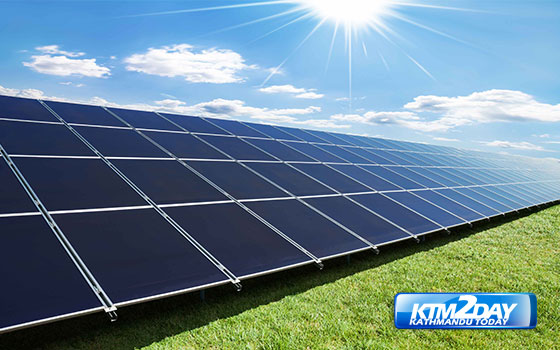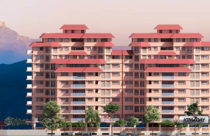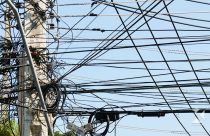ADB willing to establish large scale solar plant in Nepal


The Asian Development Bank (ADB) has said it is willing to provide aid to establish a large-scale solar plant in Nepal which is in the midst of a fuel crisis.
The multinational lender said that it had been holding discussions with the Nepal government to provide $20 million in concessional loans under its climate investment fund.
“The total size of the next project is still under discussion, and I think it is less than 50 MW,” said ADB Country Director Kenichi Yokoyama. “The proposal can be implemented as early as 2016.” According to the ADB, the solar plant will be integrated with the grid by involving the private sector.
The contribution of solar power in Nepal’s energy mix is insignificant, with just 450 kW produced and fed into the national grid.There are a few solar plants which are not connected with the NEA’s system.
Meanwhile, little progress has been made on a proposed 25 MW solar plant planned to be set up with World Bank assistance. Government officials said that the Indian embargo had shown that the country not only needed diversification of its fuel sources but also energy sources.
Chief of the international economic cooperation coordination division at the Finance Ministry Madhu Marasini tweeted on Wednesday, “Had a call with ADB headquarters early in the morning today. ADB to mobilize aid to install solar plant with capacity of at least 50 MW.
Alas, nobody has capacity to block the sun. Otherwise, what the situation would arise in this winter.” According to Marasini, ADB has agreed in principle to provide aid for the project. “This is the first step, and we have to exchange the necessary letters and conduct negotiations with the ADB for the project,” he said, adding that discussions with the ADB moved ahead after it showed interest in providing assistance. Solar street lights have been installed widely on Kathmandu’s streets under the ADB’s grant assistance.
Two small solar plants of 0.5 MW capacity have been installed at two locations, one at the NEA training centre and the other at a hospital, according to the ADB. Meanwhile, the installation of a 25 MW solar plant funded by the World Bank has been delayed. According to the agreement signed between the government and the global lender in February, it was to start generating 20 MW of power in June and go into full production by September. However, the NEA is yet to pick a contractor to install the solar plant.
“We are conducting a evaluation process of the potential contractors,” said Ram Chandra Pandey, chief of the distribution and consumer service directorate at the NEA. He added that the project had been delayed because the loan agreement took longer than expected and there were no participants in the pre-bidding process due to the April 25 earthquake. According to Pandey, it could take until December 2016 to complete the solar plant funded by the WB.















